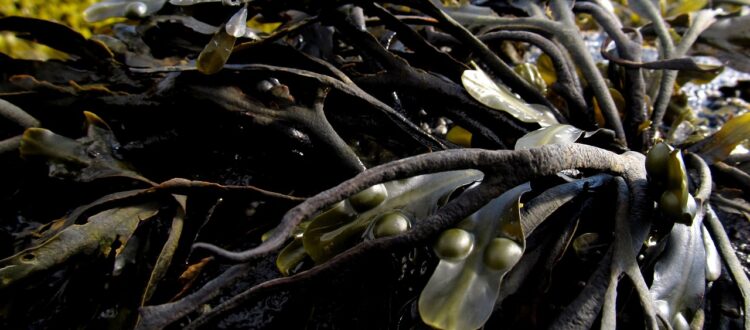
Naturally high levels of iodine in brown seaweed mean that people can become ill if they consume a large quantity of this type of seaweed. Because of the potential to cause illness FSANZ advises pregnant and breastfeeding women; and children, to eat no more than one serve a week of brown seaweed.
We recommend you don’t gather seaweed from the shore because of contamination from sea creatures, sewage, pollutants and microplastics. Additionally, naturally high levels of iodine in some brown seaweed can be particularly harmful to foetuses and the young so pregnant and breastfeeding women, and children, should not eat seaweed.
Brown seaweed , such as kelp, kombu, wakame, quandai-cai, hiziki/hijiki, arame or Sargassum fusiforme, is usually sold dried for use in soups and stewed dishes. These seaweeds can be green, black or brown in colour when sold and food colouring is sometimes used. A list of common and scientific names of these brown seaweeds and their uses can be found here.
Iodine is an essential nutrient but high levels consumed regularly over a long period of time can adversely affect thyroid function. While brown seaweed is safe for adults if eaten in moderation, there have been cases where pregnant and breastfeeding women have over consumed brown seaweed products and their babies have become ill. In these cases the mothers were consuming brown seaweed products several times a day. Because of their low body weight children can also be susceptible to excessive iodine so they should also consume no more than one serve a week. Occasional consumption of high iodine containing seaweed, e.g. once a week or so, does not present a risk because the body rapidly excretes excess iodine.
Please note pregnant and lactating women and women considering pregnancy should still heed National Health and Medical Research Council advice to take a supplement of 150 micrograms a day of iodine.
Nori and other types of red and green seaweed used in popular dishes such as sushi and dulse, are not affected by this advice but, like all foods, they should also be eaten in moderation. Pregnant women need to be aware of the risk of listeria from prepared sushi.
After considering advice from FSANZ the Australian Quarantine and Inspection Service is inspecting imported brown seaweeds to ensure batches with unsafe levels of iodine are not released.
People who may have consumed large quantities of brown seaweed over a prolonged time who feel generally unwell should consult their doctor. Similarly, anyone concerned their baby or child may have been exposed to high iodine levels from seaweed products during pregnancy or breastfeeding should consult a doctor.

